On November 28
“It’s hard for me to believe that a human being could have done what I’ve done, but I know that I did it. If I was killed in prison, that would be a blessing.”
Jeffrey Dahmer
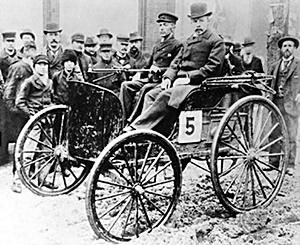
1895 – The first American automobile race took place over the 54 miles from Chicago’s Jackson Park to Evanston, Illinois and back.
Frank Duryea finished the race first, completing the race after 7 hours and 53 minutes of running time, 10 hours and 23 minutes total time, having traveled an average of 7 mph.
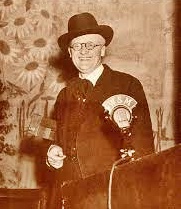
1925 – The Grand Ole Opry in Nashville made its debut on radio station WSM, as a one-hour radio “barn dance.
The brainchild of George D. Day (shown above), it is the longest-running radio broadcast in U.S. history, dedicated to honoring country music and its history.
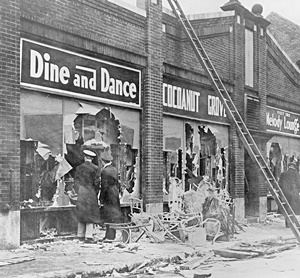
1942 – Fire destroyed the Cocoanut Grove nightclub in Boston, killing 492 people.
One of Boston’s most popular nightspots, the club was owned by Barnet “Barney” Welansky, who was closely connected to the Mafia. Fire regulations had been flouted: some exit doors had been locked to prevent unauthorized entry, and the elaborate palm tree décor contained flammable materials. The air-conditioning used flammable gas because of the wartime shortage of Freon.
The Grove was filled to more than twice its legal capacity. More than 1,000 people were crammed into the space rated for a maximum of 460. The fire was initiated by an electrical short and fueled by methyl chloride in the air conditioning unit. Flames and smoke spread rapidly through all areas of the club, and people were unable to escape efficiently because of the locked exit doors.
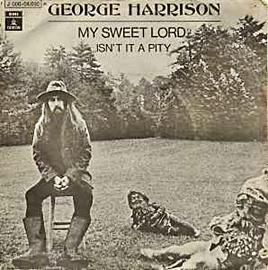
1970 – George Harrison released his first solo double-sided hit single, My Sweet Lord / Isn’t It A Pity in the U.S.
Both songs were listed at number 1 on Billboard Hot 100 chart for four weeks starting on December 26, making Harrison the first ex-Beatle to hit the top of the singles chart.
Dating from 1966, Isn’t It A Pity had most recently been rejected by the Beatles during the January 1969 sessions that resulted in their final album, Let It Be. According to EMI engineer Geoff Emerick, Harrison had previously offered it for inclusion on 1967’s Sgt. Pepper’s Lonely Hearts Club Band, while Beatles biographer Mark Lewisohn has stated that it was also presented during sessions for the previous year’s Revolver.
On all three occasions, Harrison’s song was rejected by John Lennon and Paul McCartney.

1974 – John Lennon appeared at an Elton John concert in New York’s Madison Square Garden.
While he was helping Lennon record Whatever Gets You Thru The Night, Elton bet Lennon that the song would top the charts. Lennon laughed off that prediction and promised he would appear on stage at one of Elton’s performances if the record ever hit number one … It did.

1993 – Jerry Edmonton, drummer with Steppenwolf, died in a car accident, crashing into a tree after failing to maneuver a turn, in Santa Ynez, California. He was 47.
The band’s biggest hit, Born To Be Wild, was written Jerry’s brother, Dennis Edmonton, who had begun using the pen name Mars Bonfire. The song was inspired by a billboard roadside advertisement Bonfire liked which depicted a motorcycle tearing through the billboard artwork.
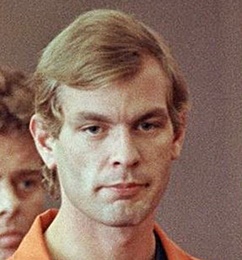
1994 – Jeffrey Dahmer was beaten to death by a fellow inmate at the Columbia Correctional Institution in Portage, Wisconsin.
Dahmer was serving sixteen life sentences for the murders of young men from 1978-1991. While serving his sentence, he became a Born Again Christian. He said he didn’t fear death because that’s what he deserved. While he was being beaten to death, he didn’t protest in any way.

1994 – Jerry Rubin died two weeks after being struck by a car as he attempted to cross Wilshire Boulevard in Los Angeles.
He was known for being one of the co-founders of the Youth International Party whose members were referred to as Yippies, and for standing trial in the Chicago Seven case.
Rubin reinvented himself as a businessman in the mid-1970s, and became a very successful stockbroker.
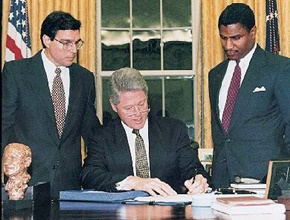
1995 – President Bill Clinton signed a bill that ended the federal 55 mph speed limit.
In 1974, the federal government had passed the National Maximum Speed Law, which restricted the maximum permissible vehicle speed limit to 55 miles per hour on all interstate roads in the United States. The law was a response to the 1973 oil embargo, and its intent was to reduce fuel consumption and increase safety.
In April of 1987, Congress passed legislation which permitted states to raise the legal speed limit on rural interstates to 65 mph. Under this legislation, 41 states raised their posted speed limits to 65 mph on segments of rural interstates. On November 28, 1995, Congress passed the National Highway Designation Act, which officially removed all federal speed limit controls.
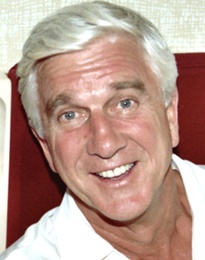
2010 – Actor Leslie Nielsen died in his sleep at the age of 84.
His early career gave him standing as a serious actor, but Nielsen later gained enduring recognition for his deadpan comedy roles in Airplane! and The Naked Gun film series.
Nielsen was legally deaf and wore hearing aids for most of his life.
Compiled by Ray Lemire ©2023 RayLemire.com / Streamingoldies. All Rights Reserved.